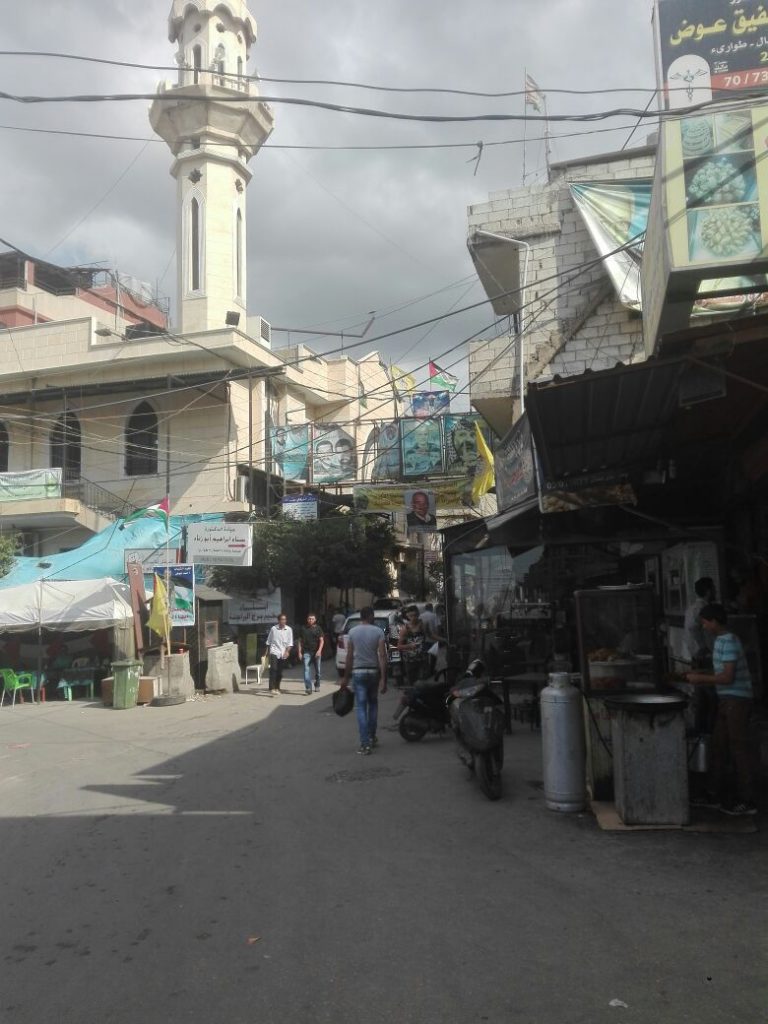Samia* and Khaled* married 13 years ago. They were both 23. Samia remembers their first five years of marriage fondly. The couple lived together in Burj Al Barajneh Palestinian camp in Beirut’s southern suburbs and soon had three children, Tareq*, Hani*, and Sara*.
Then cracks in their relationship started to emerge.
Khaled rarely worked, which forced them to live off loans and money from Samia’s family. He also forbade Samia from working, even if the money she earned would have helped them make ends meet and pay off their debt.
The tensions mounted and then, one day about eight years ago, Khaled began to physically and verbally abuse Samia.
When Samia began experiencing abuse, she turned to her mother. Instead of offering support, her mother told Samia that divorce is not an option in their community and that she should think about her kids.
“[My mother] would also tell me that as a divorced woman in our community, all eyes would be on me, and that divorce is not an option because I am not allowed to work or to live my life,” Samia said. “If you’re a divorced woman, you stay at home.”
Afraid of the ramifications of divorce, Samia stayed in her marriage, enduring regular physical and verbal abuse. It wasn’t until six months ago that Samia finally confided in a staff member of a non-governmental organization (NGO) working in the camp, who referred her to a clinic that International Medical Corps supports in Beirut with funding from the Government of Canada.
She first started receiving psychosocial support from the mental health case manager, who as soon as enough information was gathered, directly referred her to the gender-based violence (GBV) case manager for a more specialized intervention.
A month after Samia started attending the sessions at the clinic, Samia’s husband started to spend nights at his parents’ house. Samia decided to move to her parents’ house, who live at the opposite side of the camp. They have been separated ever since.
Through her sessions with the case manager, Samia’s eyes were opened to several notions, most importantly towards her basic rights as a woman. “I learned that women have rights and are valued,” she said. “Before attending the clinic, I used to think that as a woman, you need to live under your husband’s wing because he’s a man and he needs to be the one providing for you. Now, however, my views have changed.”
Prior to seeing the case manager, Samia had been thinking about filing for a divorce for the past 10 years, but never took any steps toward it. However, after the separation and her sessions with the case manager, she gained more courage and confidence to ask for a divorce in order for her to start pursuing a life of her own as an independent person. As luck would have it, Samia did not have to ask for a divorce after all, because her husband ended up asking for one a couple of months after they separated.
When asked whether she believes to have played a role in her husband’s decision to file for a divorce, Samia responded that following the sessions, she was acting with more confidence than she had in the past. “In the previous stages in my relationship with my husband, I used to ignore many of his actions and things that were bothering me,” she explained. “I had somewhat of a weakness, but recently, I stopped ignoring his actions and started to speak up for myself.”
The case worker is following Samia’s case closely and is offering her the emotional and psychological support she requires. Once the divorce was filed, she also referred Samia to KAFA, a local NGO devoted to achieving gender equality and eliminating violence and discrimination against women, so that they could support her in the procedure.
“Two years ago, when I was considering filing for a divorce, I was really upset because everyone was telling me that I would not get custody of my kids,” Samia said. “After sitting with the case manager, she opened my eyes to the fact that a woman has rights and that a woman can work. These were things I was not aware of and gaining knowledge about them made me stronger.”
Sitting with the lawyer was also beneficial to Samia, where he explained the evolution of divorce laws within the sect’s courts, which now grant custody of all children below 12 to the mother. “All this [support and information] made me think of where I was heading and made me question why I should remain weak, have to constantly bear with the beatings, and have to worry [about further abuse],” she said.
Although the divorce is not yet final, Samia feels that a new life has been granted to her. Her main hope after her divorce is to get custody of her children and support them by opening up her own clothing store.
Samia strongly believes that her sessions at the clinic have allowed her to regain control of her life and, ultimately, her destiny. “I’m telling you that coming to the clinic has enlightened me on so many levels.”
*Names changed to protect identities
